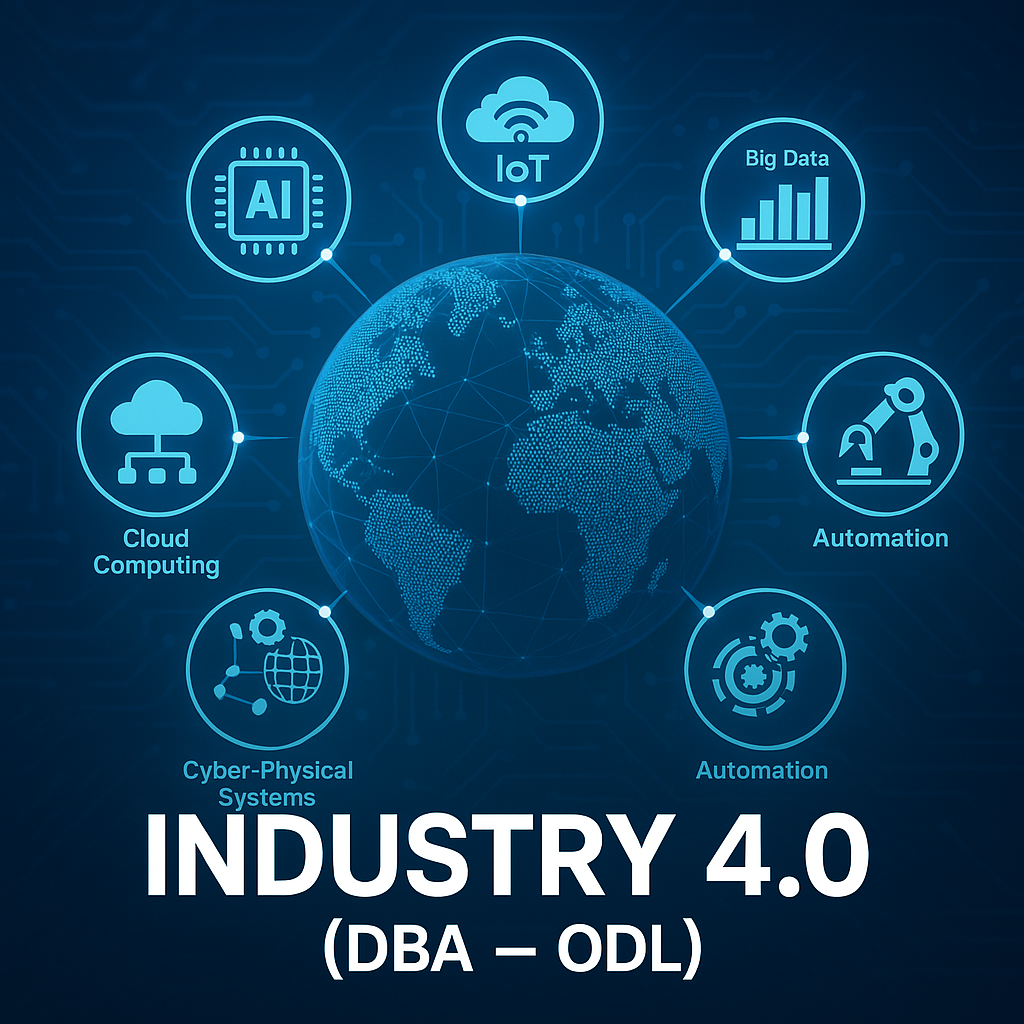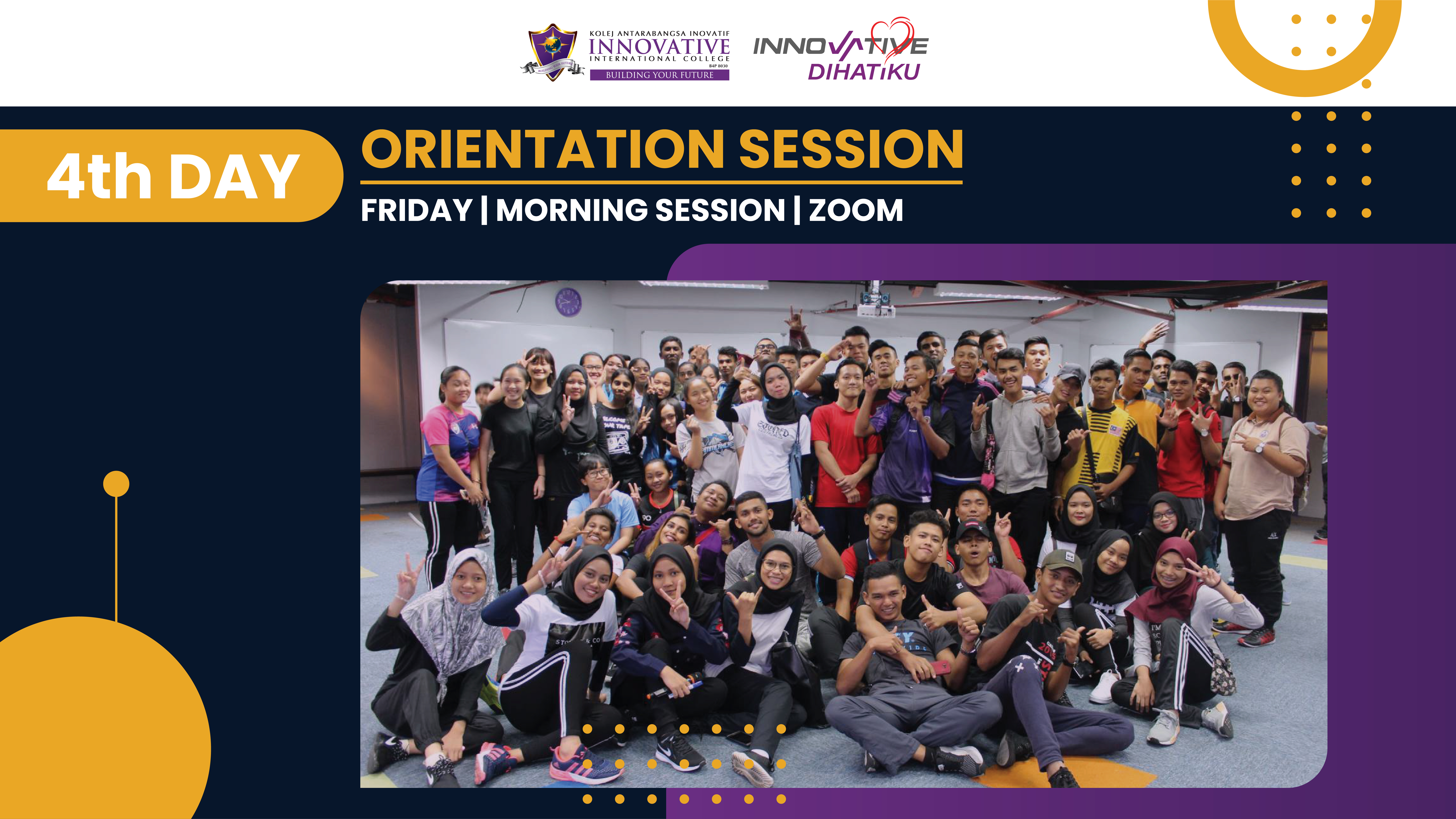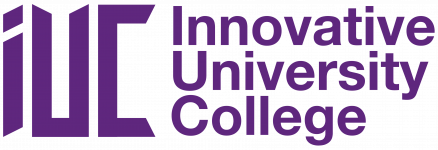- Teacher: Kokillawaani A/P Narayanasamy
Welcome to IUC
OPEN DISTANCE
LEARNING (ODL) CENTER
Embrace the world of endless possibilities and experience education like never before. Join our vibrant community of learners and engage in a flexible and innovative learning environment that transcends boundaries.
Discover knowledge, unlock your potential, and shape your future with Open Distance Learning. Let's embark on this exciting journey together!
Login as Student Register New AccountFeatured Programs
Work Based
Learning ProgramThis program focus on a hands-on experience with the industry partner in 18 months duration. Students may get the exposure in a real-world of working in the hospitality.
In this program, students able to develop operational skills such as in Front Office, Kitchen Operation, Food and Beverage Services and Housekeeping.
Diploma and
Certificate ProgramThese programs focus on relevant course related to industry needs. It covers areas such as Business, Hotel, Tourism, Aviation, Early Childhood etc.
SKM Program
Sales & Marketing Operation (Level 3) is categorised under Business & Finance sub-sector of the Business Management Sector in National Occupation Skills Standard (NOSS). This programme in compliance with Jabatan Pembangunan Kemahiran(JPK) guidance and industry directory to fit out students with strong skills as well as fundamental knowledge of sales and marketing which include advertising, promotions, public relations, and sale.
Announcement and News
Diploma in Business Administration (ODL) Is Available
October - December 2023MAGANG : ODL Class is available
20 Sept 2023ISM : ODL Class is available
October 2023
DHUMY : ODL Class is available
October 2023Innovative 9th Convocation Ceremony
10 Dec 2023
Available courses
- Teacher: NUR AZMALINA
Course Learning
The business environment refers to all the internal and external factors that affect how a business operates and performs. This includes things like employees, customers, suppliers, laws, technology, and economic conditions.
Understanding the business environment is important because it helps businesses make better decisions, adapt to changes, and stay competitive. By analyzing both the internal environment (within the company) and the external environment (outside the company), businesses can identify opportunities and threats, plan effectively, and achieve their goals.

This course introduces students to the fundamental concepts and practices of marketing. It explores the comprehensive role of marketing in identifying customer needs, creating value, and delivering effective solutions. While advertising, publicity, and sales are important components, marketing is much broader and begins long before a product or service is developed. Students will gain an understanding of how marketing strategies are formed, how markets are analyzed, and how products are positioned and promoted to target audiences. The course emphasizes the integration of marketing within the overall business strategy and highlights its role in driving organizational success.

- Teacher: NUR MAISARAH AHMAD ZUBAIDI
- Teacher: IZNI SYUHADA
- Teacher: MOHD ZAIRI BIN ZAHARIN
- Teacher: MUHAMMAD AMIRUL ZAILAINI
E-commerce, or electronic commerce, refers to the process of buying and selling goods and services over the internet. It has revolutionized the way businesses operate, allowing transactions to take place online instead of in physical stores. This transformation has made shopping more convenient, faster, and accessible to people worldwide.
By the end of this course, students will be able to:
- Understand the Fundamentals of E-Commerce.
- Identify Various E-Commerce Models
- Demonstrate Knowledge of E-Commerce Infrastructure & Technologies
- Apply Digital Marketing Strategies for E-Commerce
By achieving these learning outcomes, students will gain practical knowledge and skills to operate, manage, or start their own e-commerce business effectively. 🚀

- Teacher: NUR MAISARAH AHMAD ZUBAIDI
Organizational Behavior (OB) is the study of how individuals, groups, and structures interact within an organization to influence behavior, performance, and outcomes. It integrates concepts from psychology, sociology, anthropology, and management to understand and improve workplace dynamics. Key areas of focus include motivation, leadership, communication, team dynamics, organizational culture, decision-making, and change management. The ultimate goal of OB is to enhance organizational effectiveness and employee well-being by fostering a positive and productive work environment.

- Teacher: SOFIA SARMIMI
This course is designed to expose students to manage an event whether it is a small scale event (e.g. college level) or big scale event (international level). Looking at the recent growth of festivals and event especially at the national level it is imperative for the student to learn how to manage event. This also means that management can no longer be ad hoc. Events and festivals have a large impact on the communities, and in some cases, the whole country. Students undergoing this course will experience managing an event in a group, thus will help them in building the soft skills that are very much needed in the industry.
This course is designed to
This
course will provide you the basic knowledge and the background of Hospitality
Industry. Discussion involved the nature of hotel business, types of hotels,
set up of business and departments in hotel.
This course introduces students to the fundamentals of Industry 4.0, the fourth industrial revolution driven by digital transformation. Students will explore key enabling technologies such as Artificial Intelligence (AI), Internet of Things (IoT), Big Data Analytics, Cloud Computing, Automation, and Cyber-Physical Systems, and understand how these innovations are reshaping modern businesses and production environments.
The course focuses on how Industry 4.0 is applied in various sectors including manufacturing, logistics, and services, and the impact it has on business models, productivity, and competitiveness. Students will also examine the challenges of digital transformation, workforce readiness, and ethical considerations in the digital age.
As part of the ODL approach, students will engage with interactive online learning materials, virtual discussions, and hands-on activities through digital platforms to enhance understanding and practical application of Industry 4.0 concepts in real-world scenarios.

- Teacher: Fahim Roslan
- Teacher: NURZULFA SHAFIQAH
The inclusion of this module is essential to allow students have a good understanding of the law in aviation world. Aviation law is branch of law that concerns flight, air travel, and associated legal and business concerns. Some of its area of concern overlaps that of admiralty law and, in many cases, aviation law is considered a matter of international law due to the nature of air travel

- Teacher: NURUL ADIBAH

- Teacher: Rabiatul Addawiyah
This course is designed to focus on tourism in the South-East Asia region. It will cover the trends and patterns, destination development, economic impact, policy, etc. Focus will be given on Malaysia, Thailand, Singapore and Indonesia.
This course is designed to equip students with the knowledge and skills of operating and managing a tour. This covers from taking enquiries, planning and developing a tour package, etc. This course also requires students to develop and sell a package tour within the country. This module is introduced to build a concrete foundation for students to learn and know about the clockworks of the Tour and Travel business.
This module is introduced to provide students with knowledge on the global tourism industry and how it is affected by various external and internal factors.
Study about the definition of MICE (Meeting Incentive Convention Exhibition) in tourism industry. Focus on MICE’s importance, type, form and terminology. In addition, learn about the definition of activities, component, basic facilities, budget and working process of MICE. Finally, study about the communication with MICE related organizations
This course will aid in creating awareness of overlooked perspectives and critical issues in the tourism environment and sustainable tourism
This course is designed to ensure students have knowledge on the different places on the globe, the geographical attributes, city and country information, places of interests, etc. It is basically a study on the countries and regions on each continents of the world
This course is designed to equip students with the skills and knowledge of event management. Students will learn on the preparation for the event including learning on the elements of planning an event, executions and the evaluation of an event.
This unit aims to equip students with a comprehensive understanding of innovation and commercialisation.
In today’s competitive landscape it is critical that organisations continually innovate both their product offering and processes to ensure that they remain competitive in the market. Furthermore, adopting a more commercially driven approach is vital to maximise the Return on Investment (ROI).
In this unit, we will look at a number of tools and techniques organisations use to drive innovation and become more commercial in their approach. The aim of the unit is to give students cutting-edge knowledge as well as practical application of the key ways organisations become more innovative while remaining commercially driven.

The fast pace of today's business world involves constant new challenges - meeting new people, travel, conferences and entertaining, and the need to represent in a variety of situations. This course offers solutions that are designed to improve student confidence and working life. It explores how to present student in the best light to with colleagues and managers, as well as to clients and other people outside business, and increase prospects of promotion and personal success.
Topics covered include: marketing appropriately for business environment; learning the correct codes of behavior in workplace; improving student communication skills in person, by phone, email and letter; boosting social skills so that will be able to build contacts and get the best from any social or business occasion; communicating effectively with peers and managers and improving career prospects; running and participating in meetings effectively; maximizing image and making the best impression at all times; and understanding and respecting the differences in culture and etiquette around the world.
- Teacher: NUR MAISARAH AHMAD ZUBAIDI
- Teacher: syafiqah Hanim
This unit provides students with an understanding of the definition and scope of entrepreneurship and an understanding of the enablers and barriers to business start-up.
Students will learn about the influence of national culture and economy on entrepreneurship and will explore the personal characteristics of entrepreneurs and the impact of personal situational factors, including education and background. Students will also learn about the role and importance of small firms to the economy, and about social enterprise and the social economy. Students will also be expected to:
i) Understand the balance of risk and reward in starting a new venture and they will
ii) investigate and reflect on their own entrepreneurial and enterprising characteristics.
iii) Examples of entrepreneurs and start-up organisations will be discussed and students
iv) will be expected to draw on local, personal and general knowledge together with their
v) learning to be able to identify the characteristics of entrepreneurial ventures.
- Teacher: Nur Maisarah Ahmad
- Teacher: NUR MAISARAH AHMAD ZUBAIDI
This course is designed to incorporate a typing tutor for keyboard skills, introduction to the major software applications required for undergraduate study including word processors, spreadsheets and databases. It provides a practical and theory-based framework for students to make the important transition from a dependent learner to a student with autonomy to make decisions as a responsible computer-user.
- Teacher: syafiqah Hanim
This course aims to introduce students to the theory and practice of consumer behaviour by building a comprehensive knowledge and understanding of the relevant literature.
- Teacher: NUR MAISARAH AHMAD ZUBAIDI
This course is designed to integrates all aspects of human resource management; a conceptual model of the field in the overall context of business management. Students gain a broad, practical understanding of how HRM policies affect the workplace from productivity, quality, and customer service to employee morale.
- Teacher: NUR MAISARAH AHMAD ZUBAIDI
- Teacher: syafiqah Hanim
Inclusion of this module is essential to allow students to the nature of elementary statistical data and Techniques
This subject aims to equip students with a comprehensive understanding of innovation and commercialisation. In today’s competitive landscape it is critical that organization's continually innovate both their product offering and processes to ensure that they remain competitive in the market. Furthermore, adopting a more commercially driven approach is vital to maximise the Return on Investment (ROI).
In this unit, we will look at a number of tools and techniques organisations use to drive innovation and become more commercial in their approach. The aim of the unit is to give students cutting-edge knowledge as well as practical application of the key ways organisations become more innovative while remaining commercially driven.
- Teacher: syafiqah Hanim
This subject is introduce to understand, analyzing and assessing the individual, interpersonal, group and the organizational processes faced by employees in meeting the challenges in the working environment of an organization.
- Teacher: NUR MAISARAH AHMAD ZUBAIDI
This course is designed to comprehensive, classic principles of marketing with contemporary approach on the marketing development and strategies in meeting needs and opportunities in the global market place.
- Teacher: syafiqah Hanim
- Teacher: Adriana Abu Bakar
- Teacher: MUJAHID SODIKIN
- Teacher: EZWAN SYAHIR
- Teacher: IZNI SYUHADA
- Teacher: Saiful Anuar
- Teacher: MUJAHID SODIKIN
- Teacher: IZNI SYUHADA
Course Learning
- Teacher: KOKILA GANASARAJAH
- Teacher: NUR DIANA
Physical Security is defined as those means which serve to protect and preserve a society and allow for the conduct of activities within the organization or society without disruption. The need for Physical Security emanates from an aspect of fear which is a permanent feature in human behaviour due to the criminally and anarchism prevalent in our societies. This course Physical Security Management provides students on the understanding of Instituitional security management, critical infrastructure, retail security, criminal fraud and cyber inverstigations , banking and international security management. Students will be exposed to the Purpose of Physical Security Management which is part of a converged set of security and resilience measures focused on the protection of people, facilities, assets and data managed by multiple layers of interdependent systems.

- Teacher: Nur Fatima Aisya Jamil
- Teacher: Nur adillah Abdul rahman
- Teacher: Suhana Bt Suria
- Teacher: Nur adillah Abdul rahman
- Teacher: Norazura Binti Abd Hamid
- Teacher: Nur adillah Abdul rahman
- Teacher: Aizuddin Anuar
- Teacher: Ammar Mirza
- Teacher: INAM LINDA ZAATARI
- Teacher: Nur adillah Abdul rahman
- Teacher: Ammar Mirza
This module deals with knowledge on understanding the socio-ethical context
of management, societal analysis, ethical perspective and corporate governance.
- Teacher: NOOR YUSMA BINTI MOHD YUSOF AKBAR
- Teacher: Ammar Mirza
- Teacher: alaswa abd latif
- Teacher: Nur adillah Abdul rahman
- Teacher: NUR AZMALINA
- Teacher: Azri Usman
- Teacher: alaswa abd latif
- Teacher: Nur adillah Abdul rahman
- Teacher: Aizuddin Anuar
- Teacher: alaswa abd latif
- Teacher: Nur adillah Abdul rahman
- Teacher: Eifaa Noordin
- Teacher: Hemasri Murali








